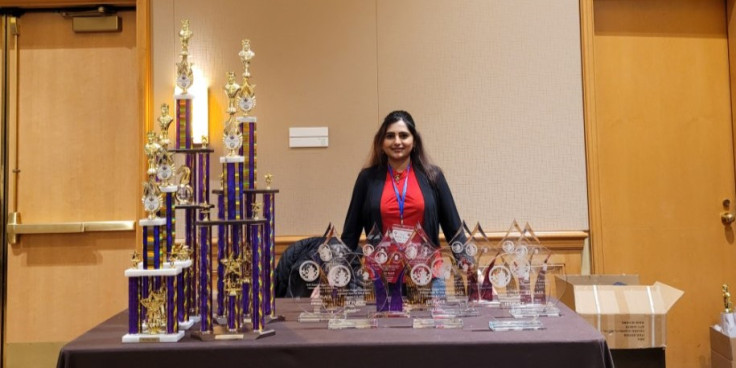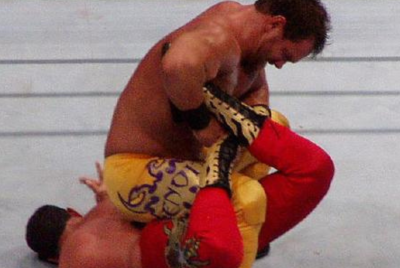From Player To Leader: Rekha Sagar Guddappa's Rise In Chess Tournament Direction
Rekha's leadership combines skill with a dedication to player experience

In chess, tournaments serve as arenas for competition and community growth, with tournament directors at the heart of this ecosystem. Rekha Sagar Guddappa, a Certified Chief Tournament Director, has directed 100 USCF-rated tournaments, earning a key role in the Washington Chess Federation. Beyond tournaments, she mentors future directors and coaches young players, fostering inclusion and excellence in the chess community.
Rekha's leadership combines skill with a dedication to player experience. "I create environments that reduce stress, promote fairness, and ensure players can focus fully on their games," she shares. Her mastery of chess rules and commitment to fair play allows her to design well-organised tournaments, encouraging competitive excellence and supporting a positive atmosphere for all participants.
Inspired To Lead
Becoming certified as a Chief Tournament Director with the USCF provides deeper involvement in the chess community, opening doors to leadership roles and opportunities to manage high-profile events. Certification reflects a director's expertise and commitment to fair and well-organised tournaments. "The certification demonstrates a high level of expertise and commitment to chess organisation, opening doors to new opportunities and challenges in the chess community," says Rekha.

Certified directors oversee tournaments and mentor emerging directors, collaborate with top players and coaches, and influence chess policy at both local and national levels. This combination of operational and leadership roles helps raise the quality of chess events, ensuring they remain inclusive and competitive for players of all skill levels. Experienced directors foster a culture of continuous learning by sharing their expertise, improving the tournament experience.
Challenges Of Running 100 Tournaments
Chess tournament directors face challenges, from balancing diverse skill levels to managing time-sensitive logistics. Ensuring fair competition often requires dividing players into sections based on rating levels, which helps beginners and experienced participants feel appropriately challenged. "A tournament has to cater to everyone," explains Rekha, reflecting how thoughtful structuring ensures an enjoyable experience.
Handling disputes during tense moments also requires strong rule knowledge and clear communication. "I used my understanding of USCF rules and strong communication skills to mediate conflicts, clarify rules, and make unbiased decisions," she adds, emphasising the importance of fairness and transparency.
Directors must also manage logistics efficiently, from coordinating with venues to troubleshooting pairing software malfunctions. Building relationships with reliable venues and having contingency plans helps avoid disruptions, while precise schedules with buffer times ensure smooth tournament flow. Keeping players engaged is equally crucial, which many directors achieve by offering varied formats—like blitz and classical events—and meaningful incentives. Through these strategies, directors maintain a positive tournament atmosphere and continuously improve the player experience.
What Makes A Great Tournament Director
A successful Tournament Director (TD) must combine technical expertise, effective communication, and adaptability to ensure smooth and fair competition. A deep understanding of chess rules, including time controls and tie-break procedures, is essential. Rekha explains, "A Tournament Director must have a deep understanding of the USCF's rules and procedures," which helps directors manage disputes effectively and ensure consistent application of the rules.
Communication skills are equally crucial, particularly during high-pressure situations. Directors must calmly address disputes, late arrivals, and questions from participants or parents while maintaining transparency to build trust. Strong organisational skills are also necessary to manage schedules, coordinate multiple rounds, and handle unexpected challenges, such as technical issues or venue constraints.
Adaptability is key, as tournaments often present surprises. "Over time, I've learned to anticipate potential problems and adapt quickly by always having backup plans," says Rekha, reflecting on how experienced directors develop strategies to keep events running smoothly. With these qualities, TDs can foster enjoyable and fair experiences for all participants.
Keeping Smooth And Fair Tournaments
Managing smooth and fair tournaments requires thorough preparation, efficient operations, and transparency. Pre-tournament planning sets expectations by sharing schedules, rules, and sections in advance. Online registration simplifies participant management, while processes for walk-ins prevent disruptions. Directors work closely with venue staff and maintain backup plans for power outages.
Fairness is ensured by dividing players into rating-based sections and enforcing time controls with digital clocks. "When a dispute arises, I use a calm, step-by-step approach," explains Rekha, emphasising the importance of objective decision-making. For more significant events, tasks are delegated, and time buffers are built into schedules to avoid delays. Organisers also motivate participants with incentives like trophies and sportsmanship awards. Post-event feedback helps refine future tournaments, ensuring each competition offers a positive experience.
A Memorable Tournament Experience
Large regional chess tournaments present unique opportunities and challenges, offering valuable lessons for organisers. Events with hundreds of participants require careful planning, especially when accommodating a diverse group of players—from beginners to seasoned competitors. To ensure balanced competition, directors often create multiple sections based on rating levels, allowing participants to compete within their skill range. As Rekha points out, "A tournament has to cater to everyone," emphasising the need to design events that meet the expectations of all participants.
Unexpected logistical challenges are common in significant events. For instance, power outages or technical malfunctions can disrupt operations, requiring directors to adapt quickly. Organisations must rely on backup plans and strong relationships with venue staff in these situations to minimise disruptions.
"This situation tested my ability to stay calm under pressure and think on my feet," recalls Rekha, underscoring the importance of flexibility. Directors also learn the value of teamwork and delegation, allowing them to focus on key decisions while assistants manage operations on the ground. Additionally, fostering inclusivity—such as introducing sections for underrepresented groups—enhances engagement and makes tournaments more welcoming. Through experiences like these, directors develop strategies that combine adaptability, fairness, and inclusivity, ensuring the success of future events.
Mastering Dual Roles In Chess
Balancing strategic leadership with tournament management requires clear role definition, time management, and delegation. Leaders must divide their focus between long-term growth initiatives and operational tournament tasks. "In my role as Vice President, I focus on broader organisational leadership," says Rekha, highlighting the need to keep leadership and tournament duties distinct to avoid overlap.
Planning is essential, especially for significant events, to meet both roles' demands without sacrificing quality. Delegating tasks like registration or communications allows directors to focus on high-level decisions, such as resolving disputes. "My leadership role in the federation helps me have a broader perspective on chess development, which I can apply to improving tournament experiences," she explains. Leaders can successfully manage both roles and foster community growth with adequate planning and teamwork.
A Champion's Mindset
Directors with a background in competitive chess bring valuable insights into tournament management. Having experienced the emotional investment, pressure, and focus required at high levels, these directors are better equipped to create environments that reduce stress and promote fair play. "Having competed at high levels, I understand the pressure, focus, and emotional investment players experience," says Rekha, emphasising the importance of fostering a player-friendly atmosphere where participants can perform at their best.
Competitive experience also sharpens a director's focus on integrity. Directors understand the importance of rules being "clearly communicated, consistently enforced," ensuring a fair and respectful playing field. Experience with multi-round events and various formats helps them manage tournament dynamics effectively, from structuring pairings to balancing time controls. Moreover, insights gained from competing in underrepresented spaces often drive directors to promote inclusivity, offering sections or incentives to encourage participation from women, beginners, or hesitant players. By combining attention to detail, fairness, and resilience, directors with competitive experience create tournaments that reflect the values of both excellence and inclusivity.
Growing Chess For All
The future direction of chess tournaments focuses on expanding participation, fostering inclusivity, and embracing innovation. Organisers aim to host large-scale events that attract diverse players and provide opportunities for all skill levels to grow. "Expanding opportunities for players across different skill levels to compete and improve" is essential, notes Rekha. Schools, clubs, and community organisations are key in engaging young players and supporting underrepresented groups, such as women and beginners.
Innovation reshapes chess through hybrid formats, rapid tournaments, and advanced technologies like pairing software and live broadcasts, enhancing player experience and audience engagement. Mentoring future Tournament Directors ensures sustainable growth while promoting chess as a lifelong skill that builds critical thinking and community connections. These efforts make chess more accessible, dynamic, and engaging for all players.
Rekha has shaped chess tournament direction through her leadership and vision, creating inclusive environments for players of all backgrounds. She redefines tournament structures by mentoring new directors and adopting innovative technologies to help players thrive. Her focus on inclusivity and innovation ensures chess remains a dynamic, lifelong pursuit that fosters critical thinking and personal growth, inspiring future leaders and players in the community.
© Copyright IBTimes 2025. All rights reserved.





















